There’s a lot of focus nationally these days on the health of our elections and democracy, and while Illinois hasn’t been in the headlines, can we do better?
Of course we can. How? Here are seven ideas.
1. Typically at this time of year, the primary election would be done and we’d be starting to look toward the November matchups. But one giant change came from the delayed census results last year: moving our primary election in Illinois to June 28.
We’ll see soon enough whether the calendar change to a warmer time of year improves participation, but why not make the change away from March permanent?
What else might we try to improve our elections and access to the ballot?
2. Let’s keep lowering the numbers of voter signatures it takes to qualify to run. Candidates are required to provide voters’ signatures from inside the geography in which they want to run to show they have a certain level of support, but challenges presented by the pandemic and the need to collect signatures during winter ought to compel elected officials to lower the voter signature threshold.
Traditionally, party bosses and many incumbents have wanted higher numbers of voter signatures required in order to keep the competition low or nonexistent. But it really makes no sense whatsoever that it takes 12,500 voters’ signatures to run for Chicago mayor and more than 5,800 signatures to run as a Democrat countywide in Cook County when it takes only 3,250 signatures to run for statewide office as a major party contender. And should it really take five times that, 25,000 voter signatures, to run statewide as a third-party candidate or independent?
3. Let’s require candidates to share publicly an email address and phone number when they file the paperwork to run so reporters can more easily contact them to get their views. That helps us all to be educated so that we can make more informed decisions at the ballot box.
4. You know it’s bad when the Illinois Democratic County Chairs Association acknowledges, “Illinois has some of the most complex ballot access laws in the country.” Let’s put an end to tossing candidates off the ballot for nonsense like papers being fastened improperly. Instead, let’s make it easier for people to get involved in our democracies.
5. How about we allow voters to sign candidates’ petitions online, and allow candidates and their helpers to use a digital tablet with internet access to check in real time whether a voter actually is registered at the address they’re about to use to help a candidate before they sign a candidate’s petition papers? They’ve done this for some time in Colorado and Arizona. HB 4966 in the Illinois House would do just that, but it’s stalled in Springfield with just a few weeks left in session.
6. Let’s open up our primaries and stop making people ask for a Democratic or Republican ballot before they vote. More voters are independent, and that trend isn’t shrinking. Opening up the primaries likely would improve participation and end a significant problem: Very few voters are doing the winnowing and picking of our general election contenders. Those primary voters tend to be from their parties’ extreme wings, and their choices do not tend to reflect the population as a whole. That is one of the big drivers of the hyper-polarization we’re experiencing in our politics and government.
7. Of course, drawing political district boundaries to secure a certain partisan outcome also discourages competition and vests too much power in the parties’ establishments. That needs to stop. When party leaders draw the districts and pick both the voters and the candidates, help those candidates collect signatures to get on the ballot, fund their campaigns, create their literature and tell them what to say, we end up with little competition, closed systems and party machines that discourage new ideas and independent thought.
We’ve seen that at play in Illinois for years with decreasing numbers of state House and Senate races that are contested or truly competitive.
The Daily Line recently reported 75 out of the 177 state House and Senate races are over before they’ve begun because only one candidate is running now in those districts. That’s more than 42% of the contests with zero competition. After the last redistricting cycle, 68 districts had only one candidate after the primary election filing deadline, the government news outlet reported, so the problem is worsening.
Illinois isn’t getting the national attention, but there is much more we can do to boost the health of our democracies and elections. It’s vital we do just that.
Madeleine Doubek is executive director of Change Illinois, a nonpartisan nonprofit that advocates for ethical and efficient government.
The original article can be read on Crain’s Chicago Business.
